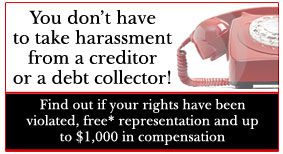Generally creditors are not required to notify debtors that they intend to turn over or send a delinquent account to collections. Many consumers mistakenly believe that their creditor is somehow obligated to tell them about collection action before they can send the account to collections.
However, the Truth in Lending Act and the Uniformed Commercial Code (UCC) requires any credit contract to come with a full disclosure statement that clearly spells out the terms of the contract. Many states have consumer laws as well that speak to full disclosure.
The only exception to notifying you before sending a delinquent account to collections is if the disclosure statement or credit contract calls for it. Most statements expressly exclude any notifications except as a courtesy.
Most creditors send monthly statements with a bill attached or included. If your debt is past due and you receive a regular statement showing the past due amount, consider that notification that your account can be sent to collections. Look at your credit disclosure statement for words similar to these:
“If I fail to pay the amount that you think I owe, you may report me as delinquent and send the account for collection action.”
Notice there is nothing that says they must notify you. Unless the disclosure statement says it, they don’t have to do it. Many creditors will, as a courtesy, send you a reminder or two of the past due debt and include a note that says the account will be sent to collections if you do not pay by a certain date.
Bottom line: Creditors do NOT always have to tell you before sending an account to collections.
This includes co-signed credit contracts as well. If the primary borrower defaults, the account can be immediately sent to collections without notifying the co-signer. Again, the exception is if the disclosure statement calls for the creditor to notify the co-signer.
If a creditor is not honoring a payment plan, or you believe you are a victim of illegal or unfair debt collection practices, submit your information to a FREE* Fair Debt Lawyer by:
- Clicking here for a FREE* Fair Debt Case Review;
- Calling toll free 888-FDCPA-LAW (888-332-7252);
- Clicking here to locate a FREE* Fair Debt Lawyer.
The debt collector may just be liable to you for statutory damages of up to $1,000, plus any actual damages suffered, plus attorney fees!
 Fair Debt Collection
Fair Debt Collection




